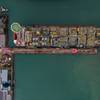Security Regs Will Impact the Bottom Line
In the latest issue of its loss-prevention newsletter 'Signals', the 45 million GT club says all existing and future contracts relating to ships' operations - including charterparties, bills of lading and crew contracts - will need reviewing in the light of new obligations and risks created by the International Ship and Port Facility Security (ISPS) Code.
'One of the main objectives of the ISPS Code is to prevent ships being used by terrorists,' says FD&D department lawyer Mark Robinson. 'That means that ship owners and manning agents will need to look more carefully at the people they employ or allow on board - which in turn will require new procedures and contractual arrangements.'
The club says the increased risk of delay in ports due to security issues will also need to accounted for in charterparties and bills of lading. 'Charterparties and bills will need to specify which party bears loss of time for delays under ISPS rules, which party bears any additional costs and what the respective parties obligations are with regard to provision of documents and information,' says Robinson.
An issue of particular concern in voyage charters, for example, is the effect that events relating to security may have on laytime, says the club's maritime security expert Stephen Jones, who joined the club last year from Marine Risk Consulting and Investigations - one of the UK's leading maritime security organizations, 'For instance, if a ship is delayed getting into a port because of security issues, where and when can notice of readiness by given and when does laytime start? Unless these issues are addressed now, shipowners run the risk of suffering delays, problems and expense that have not been planned or budgeted for,' says Jones.










